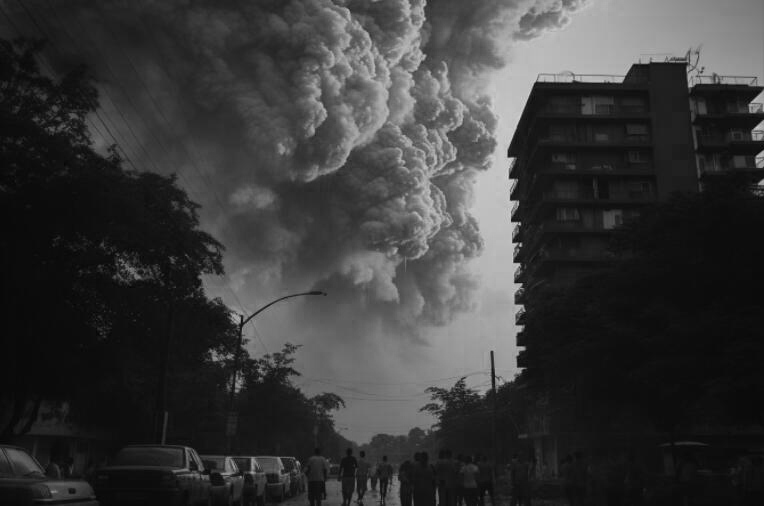DeepMind AI Stuns Forecasters With Deadly Hurricane Prediction
Google's AI Weather Whisperer Predicts Catastrophic Hurricane
When Hurricane Melissa slammed into Jamaica as a monstrous Category 5 storm last November, it marked more than just another devastating weather event - it became the coming-out party for artificial intelligence in meteorology. Google's DeepMind system had seen this catastrophe coming when human forecasters were still grappling with uncertainty.

Image: AI-generated visualization of Hurricane Melissa (Source: Midjourney)
The Prediction That Changed Everything
The breakthrough came as Melissa churned through the Caribbean south of Haiti. National Hurricane Center forecaster Philip Papin made what colleagues called "the boldest call of his career," predicting unprecedented rapid intensification to Category 4 status within 24 hours. What few knew then was that Papin had secret help - experimental forecasts from DeepMind that saw patterns invisible to traditional models.
"We've never had this level of confidence so early," Papin later admitted. "The AI spotted atmospheric cues we'd normally miss until it was almost too late."
How DeepMind Rewrote the Rules
The system represents a quantum leap from physics-based prediction models that have dominated meteorology for decades. Where supercomputers crunch endless atmospheric equations, DeepMind analyzes storm behavior patterns across historical data - spotting connections human analysts might never notice.
The results speak for themselves:
- 72-hour lead time on major track predictions (vs. 48 hours traditionally)
- 40% faster computations than conventional models
- Cost reductions making high-quality forecasting accessible worldwide
Yet challenges remain. While excelling at tracking storm paths, intensity forecasts still show room for improvement - particularly during rapid strengthening phases like Melissa experienced.
The Human-AI Forecasting Partnership
The NHC isn't handing over its hurricane warning responsibilities to algorithms just yet. Instead, forecasters like Papin envision a collaborative future where AI handles pattern recognition while humans provide contextual wisdom.
"These tools don't replace judgment," Papin explains. "They give us more time to make better decisions when lives are on the line."
Google plans extensive collaboration with meteorological agencies worldwide to refine DeepMind's capabilities ahead of next hurricane season. Key focus areas include improving intensity predictions and making the AI's reasoning more transparent to forecasters.
The success has sparked broader discussions about AI's role in disaster preparedness - and raised hopes that technology might finally help humanity get ahead of nature's most destructive forces.
Key Points:
- 🌪️ Historic Accuracy: DeepMind correctly predicted Hurricane Melissa's path days earlier than conventional methods
- ⚡ Lightning-Fast Analysis: Processes complex atmospheric data 40% faster than traditional supercomputers
- 🤝 Human-AI Collaboration: Meteorologists now use the tool alongside existing forecasting methods
- 🔮 Future Improvements: Focus turns to better intensity predictions and model transparency